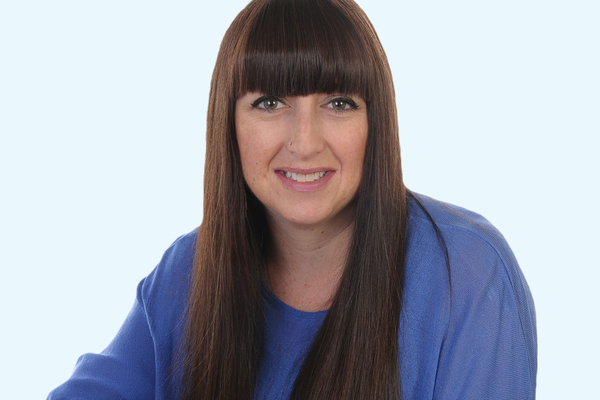Out of the classroom
Fifty years after Cathy Come Home, Joe Dart finds out what the next generation of housing professionals are being taught about homelessness
Video:
features style

The social housing sector is all too aware of how important it is for the whole of society to tackle homelessness. Yet the current outlook is the bleakest it has been for over a decade.
As such, it’s vitally important that the next generation of housing professionals are encouraged to take up arms in the fight against homelessness.
This year not only marked the 50th anniversary of Ken Loach’s Cathy Come Home but also revealed a precipitous rise in rough sleeping, with government figures showing that 3,569 people slept rough on any one night across England in 2015, more than double the number counted in 2010.
With that backdrop, an event dedicated to helping those new to the sector learn more about the issue is timelier than ever.
“Anyone could easily end up homeless; it’s not an abstract concept.”
Lindsay Roches, graduate management trainee, Wheatley Group
Earlier this month, housing group Incommunities hosted the latest Graduate Employment Mentoring (GEM) Programme session, focusing on rough sleeping and homelessness.
Video:
Ad slot
For Karina Duncan, a graduate trainee at United Living, the day gives her the chance to hear first-hand about the reality of homelessness.
“I knew enough [about homelessness] to write a dissertation, but the emotional connection isn’t really made when you just look at statistics. But we actually met someone who was in that situation and it adds a bit of realism to what you’re trying to do,” she says.
This was the first dedicated learning day for the ninth cohort of ‘GEMs’ to come through the programme, which has been running since 2009. The GEMs come from housing organisations across England, Scotland and Northern Ireland, with two of this year’s graduates even living in Canada and studying the Chartered Institute of Housing’s accredited programme via distance learning.

Inside Housing is at the University of Bradford’s Heaton Mount campus to join the 23 mentees getting a crash course in homelessness. Would their views and attitudes be shaped by the day’s proceedings? And would they be able to come up with any fresh ideas that could help solve the growing crisis?
Understanding the problem
As Terrie Alafat, chief executive of the Chartered Institute of Housing, points out during her speech at the event, the sector needs to understand both the root causes of homelessnes and the people involved before it can develop solutions to the crisis. That is exactly what today is about.
On the day, the GEMs participate in a comprehensive programme of events and activities to ensure they take that message on board. Sessions range from a hard-hitting exhibition of photographic images from Nigel Tooby of life on the streets through the eyes of the homeless, through to presentations from housing practitioners on the detailed legal and policy framework surrounding rough sleeping and homelessness.
One session which particularly resonates with the graduates is the personal account of homelessness by artist David Tovey. He details how he went from being a successful army chef who had cooked for the Queen to finding himself homeless and forced to live in his car for six months.
“Being at the session with David Tovey, hearing his personal experience, it really brings it home and it really gives you an insight of how it is to be homeless,” says Joseph Murray, who works in the business improvement team at Thurrock Council.

He adds: “Coming from a university-educated background, you almost get a glazed view of it and you can’t really appreciate how difficult it is when you’re not being personally affected by it.”
For many in attendance, the most striking revelation is just how easy it is to fall into the homelessness trap. Recent research from Shelter found that one in three working families are just one pay cheque away from losing their home.
Lindsay Roches, a graduate management trainee at Wheatley Group, agrees that it could happen to anybody. “Every decision could change your life, so I think anyone could easily end up homeless. It’s not an abstract concept,” she says.
Changing attitudes
The day’s activities end with a Dragons’ Den-style session, where the GEMs are split into groups and asked to devise solutions to the homelessness crisis.
The consensus among the students is that we have to first tackle society’s perception of homelessness before any meaningful progress can be made.
One GEM suggests some of the culpability lies with the media. Programmes such as Benefits Street, say the graduates, feed into a narrative that suggests people living in poverty or on welfare are underserving of sympathy or support.
“You can’t really appreciate how difficult it is when you’re not being personally affected by it.”
Joseph Murray, business improvement team, Thurrock Council
When asked whether they thought the public did enough to help tackle homelessness, a resounding ‘no’ comes from the GEMs around the table.
“People don’t care enough,” says Mr Murray, with others in the room agreeing that the general public has become desensitised to the issue.
In terms of solutions, the students think the government should invest more into providing affordable housing for those in need. The view from the group is that the £1.4bn of cash earmarked for 40,000 new affordable homes in chancellor Philip Hammond’s Autumn Statement “wouldn’t make much of a dent” in the crisis.

Ms Duncan says that in order to really tackle the homelessness crisis, there needs to be better integration and communication between housing associations and councils. She suggests a possible solution could come via investment in a major IT platform to stop those in need of help yo-yoing between different providers.
“[We should be] incentivising them to work together, because the whole point is that they’re meant to be providing housing, but I think they’re forced to compete against each other, and it has a negative impact,” she says.
The feeling among the graduates at the end of this comprehensive crash course in homelessness is that they have a much better understanding of the importance of tackling this vital issue. Many say they feel empowered, knowing that their actions could have a real impact on changing the lives of the homeless.
“A lot of the time you think that you can’t make a difference or do anything on your own, but if every single person in that room can take away that they can make a difference, obviously then huge changes can be made,” says Mr Murray.








